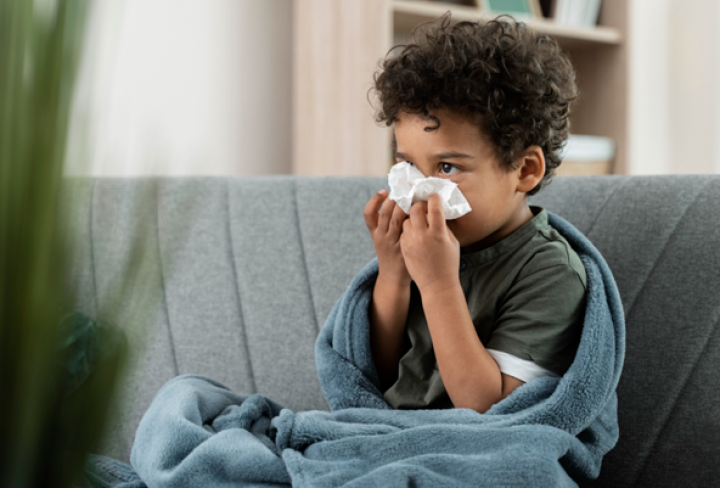Introduction
When your child falls ill, it can be challenging to determine whether a visit to the pediatrician is necessary. Understanding when to seek medical attention is especially crucial for parents of young children. While most common childhood infections are not severe, some may require a call or trip to the pediatrician’s office. In this blog, we will discuss routine childhood illnesses and provide guidelines to help you decide when it’s time to seek professional help. By being aware of the symptoms and knowing when to reach out, you can ensure your child receives the appropriate care.
Common Childhood Illnesses and Concerns
Children experience various common illnesses throughout their childhood. According to experts, it is typical for children to have about six to eight colds per year. Alongside the common cold, other routine childhood illnesses include gastroenteritis (stomach flu), ear infections, seasonal flu, and bronchiolitis. While these illnesses may be familiar, it’s natural for parents to have concerns and worries when their child falls ill. The feeling of helplessness is common, but knowing when to take action is essential. Balancing between not overreacting and ensuring your child receives proper care can be achieved by following some general guidelines.
Guidelines for Seeking Medical Help
Recognizing when to seek medical help is crucial in ensuring your child’s well-being. Fever is a common symptom of childhood illnesses, but not all fevers require a visit to the pediatrician. Consider reaching out to the doctor if your child experiences a fever over 104°F or if a baby under three months old has a fever above 100.4°F. Additionally, suppose the fever doesn’t respond to over-the-counter medication or is accompanied by symptoms like ear pain, sore throat, stiff neck, or headache. In that case, it’s best to consult a pediatrician.
Coughing is another common symptom associated with colds, flu, or bronchitis. While home remedies are available, it’s important to call the pediatrician if the cough is worsening, accompanied by fast breathing, wheezing, or lasts more than a week. Poor feeding and difficulty sleeping should also be taken into consideration.
Vomiting can be distressing, but it’s important to determine when it requires medical attention. Call the pediatrician if your child’s stomach is hard or tender to the touch, if signs of dehydration are present, if your child is unable to keep any liquids down, or if excessive sleepiness occurs. Additionally, if your baby is less than two months old and is experiencing vomiting (not just spitting up), it is advisable to contact a healthcare professional.
Irritability is common in children, but it could be a sign of an underlying illness in certain cases. If your baby is inconsolable, crying excessively, or exhibiting additional symptoms such as fever or headache, it’s recommended to reach out to your child’s doctor for guidance.
Recognizing Urgent Situations
While most childhood illnesses can be managed at home or with a pediatrician’s guidance, some symptoms require immediate medical attention. Suppose your child is having trouble breathing, experiencing retractions (the area between the ribs sucks in when inhaling), or showing bluish lips and fingernails. In that case, it is essential to seek immediate medical help. Severe allergic reactions with symptoms like swollen lips, rash, or wheezing also necessitate urgent medical attention. Decreased responsiveness or loss of consciousness should never be ignored; immediate emergency care is vital in such cases.
Conclusion
You know your child best as a parent and can often sense when something is amiss. When in doubt, it’s always better to err on the side of caution and reach out to the pediatrician. Remember, a simple phone call can provide helpful tips and even save lives. By familiarizing yourself with common childhood illnesses and understanding when to seek medical help, you can ensure your child receives the care they need. Stay informed, trust your instincts, and prioritize your child’s health and well-being.

